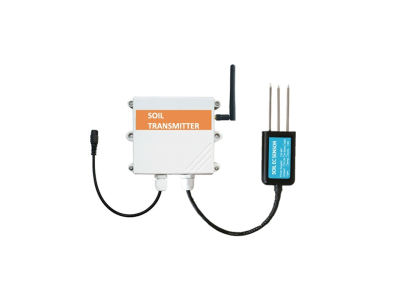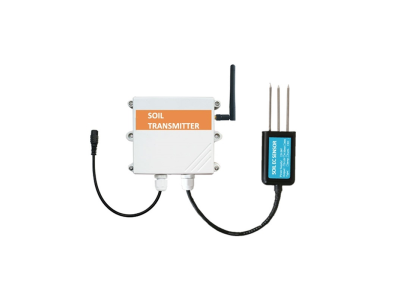Agriculture is the backbone of our global food system, and ensuring sustainable crop production is essential to meet the growing demand for food. To achieve this, farmers are embracing innovative technologies, and one such revolutionary tool is soil sensors. These devices have transformed traditional farming practices by providing real-time data about soil conditions. In this article, we will explore the role of soil sensors in agriculture, their benefits, and how they are revolutionizing crop production.
Understanding Soil Health:
Soil health is a critical factor in determining crop productivity and overall agricultural sustainability. Traditional farming methods often rely on visual observations or manual soil testing, which can be time-consuming and lack precision. Soil sensors offer a more efficient and accurate solution by providing continuous monitoring of soil conditions. These sensors can measure various parameters, including moisture content, temperature, pH levels, and nutrient availability.
Real-time Monitoring and Precision Farming:
Soil sensors enable real-time monitoring of soil conditions, allowing farmers to make data-driven decisions. By placing these sensors strategically throughout their fields, farmers can obtain detailed insights into the spatial variability of soil parameters. This information helps them optimize irrigation, fertilization, and other agronomic practices on a site-specific basis. The result is enhanced resource efficiency, reduced waste, and improved crop yields.
Optimizing Irrigation:
Water is a precious resource, and efficient water management is crucial for sustainable agriculture. Soil sensors play a vital role in optimizing irrigation practices by providing accurate measurements of soil moisture levels. Farmers can use this data to determine when and how much water to apply, ensuring that crops receive an optimal amount without waterlogging or drought stress. By avoiding over-irrigation, farmers can conserve water resources and reduce operational costs.
Nutrient Management:
Proper nutrient management is essential for healthy plant growth and high crop yields. Soil sensors enable farmers to monitor nutrient levels in real-time, allowing for precise fertilization practices. By analyzing data from these sensors, farmers can identify nutrient deficiencies or excesses and tailor fertilizer applications accordingly. This targeted approach minimizes the risk of nutrient runoff, reduces environmental pollution, and optimizes resource utilization.
Identifying Soil Variability:
Soil conditions can vary significantly within a single field, impacting crop growth and yield potential. Soil sensors help identify spatial variability by providing detailed information about soil parameters across different locations. Farmers can use this data to create soil maps, delineate management zones, and apply site-specific treatments. By addressing soil variability, farmers can optimize inputs, improve crop uniformity, and increase overall productivity.
Early Detection of Soil-related Issues:
Soil-related issues, such as salinity, compaction, or pH imbalance, can have a detrimental impact on crop health and productivity. Soil sensors enable early detection of these problems by continuously monitoring soil conditions. Farmers receive alerts or notifications when certain thresholds are exceeded, allowing them to take proactive measures. Early intervention can prevent crop damage, reduce yield loss, and minimize the need for corrective actions.

Integration with Smart Farming Systems:
Soil sensors are an integral part of smart farming systems, where various technologies work together to optimize agricultural practices. These systems integrate soil sensor data with other sources, such as weather forecasts, satellite imagery, and crop models. By combining multiple data streams, farmers gain a comprehensive understanding of their fields and can make informed decisions regarding planting schedules, pest management, and harvest timing.
Data-Driven Decision Making:
The data collected by soil sensors provides farmers with valuable insights that guide their decision-making process. By analyzing historical data, farmers can identify trends, evaluate the effectiveness of different practices, and make informed adjustments. Over time, this continuous learning loop improves farming techniques and increases efficiency. Data-driven decision-making also facilitates better communication between farmers, agronomists, and researchers, fostering knowledge sharing and collaboration.
Environmental Benefits:
The use of soil sensors in agriculture offers several environmental benefits. By optimizing irrigation and nutrient management, farmers can reduce water pollution, minimize fertilizer runoff, and lower greenhouse gas emissions. Additionally, enhanced resource efficiency reduces the pressure to convert additional land for farming, thus preserving natural habitats and biodiversity.
Challenges and Future Outlook:
While soil sensors have revolutionized agriculture, some challenges remain. Cost can be a barrier for small-scale farmers, and technical expertise is required for proper installation and data interpretation. However, advancements in sensor technology and increased adoption are driving costs down, making them more accessible. In the future, we can expect further improvements in sensor accuracy, durability, and connectivity, enabling seamless integration with digital farming platforms and expanding their potential applications.
Conclusion:
Soil sensors are revolutionizing agriculture by providing real-time data on soil conditions, enabling farmers to make informed decisions and optimize crop production. By facilitating precise irrigation, nutrient management, and early detection of soil-related issues, these sensors enhance resource efficiency, reduce environmental impact, and improve overall sustainability. As technology continues to advance, soil sensor systems will play an increasingly vital role in shaping the future of agriculture, ensuring food security, and promoting sustainable farming practices.






